Are you venturing into a construction project and feeling overwhelmed by the paperwork? Crafting a solid construction contract agreement is essential for ensuring that all parties understand their roles, responsibilities, and timelines. This template simplifies the process, allowing you to focus more on building and less on bureaucratic hurdles. Dive into our article for detailed guidance and tips on how to tailor your contract for success!

Parties Involved
In a construction contract agreement, parties involved typically include the Client (the individual or entity commissioning the construction work) and the Contractor (the licensed professional or company responsible for executing the construction project). The Client's obligations often encompass financing the project, while the Contractor commits to delivering quality workmanship according to architectural designs. Additional parties may comprise subcontractors (specialized trades hired by the Contractor for specific tasks) and suppliers (vendors providing materials essential for construction). Regulatory bodies may also play a role, ensuring compliance with local building codes and safety standards. Specific names, addresses, and roles of all parties should be clearly stated within the agreement to establish accountability and legal clarity.
Project Description
The construction project involves the development of a residential building situated in the downtown district of Springfield, encompassing four stories and comprising a total of 20 units. The project's scope includes site preparation, foundation work, framed structure, roofing, and installation of essential utilities such as plumbing and electrical systems. The timeline spans approximately 12 months, starting from January 2024, with an expected completion date in December 2024. The budget allocates $2 million for materials, labor, and permits, ensuring compliance with Springfield's zoning laws and building codes. The project aims to enhance local housing availability and contribute to the community's growth, featuring modern amenities and sustainable building practices.
Scope of Work
In construction contract agreements, the scope of work clearly defines the specific tasks and responsibilities to be completed. This includes detailed descriptions of project components such as site preparation, structural work, electrical installations, plumbing systems, and finishing details. Each task may specify materials (like concrete, steel, wood) to be used, methods (like excavation, framing, wiring), and adherence to safety regulations in accordance with local building codes. Timeframes for milestones and final completion, alongside relevant permits (such as building permits from city or county offices), should also be outlined to ensure accountability. Additionally, quality standards and inspections may be stipulated to guarantee the client receives the expected results. This clarity helps prevent misunderstandings and disputes during the construction process.
Payment Terms
In construction contract agreements, payment terms outline the financial obligations of both parties involved in the project, typically specifying the total contract amount, payment schedule, and conditions for payment releases. These agreements often include milestone payments, which are disbursed upon the completion of specific phases of the project, such as foundation work, framing, or final inspection. Additionally, the document may address retainage, a percentage (commonly 5% to 10%) withheld until project completion to ensure satisfactory workmanship. It should also stipulate payment methods, such as bank transfers or checks, and define terms for late payments, including penalties or interest fees, often expressed as a percentage over a defined period. Clear payment terms is crucial to prevent disputes and ensure financial transparency throughout the construction project.
Duration and Deadlines
The construction project timeline is crucial for ensuring timely completion and adherence to deadlines. The agreement specifies a duration of six months (from January 1, 2024, to June 30, 2024), highlighting key milestones such as foundation pouring, wall framing, and roofing installation. Each phase has associated deadlines, with inspections scheduled for March 15, 2024, and May 15, 2024, to ensure compliance with building regulations set forth by the City of Springfield. Delays beyond the agreed timeline may incur penalties, with a daily fine of 1% of the total contract value, emphasizing the importance of maintaining progress on the project. Adherence to this schedule is imperative for securing necessary permits and meeting client expectations for occupancy.
Letter Template For Construction Contract Agreement Samples
Letter template of construction contract agreement for residential projects
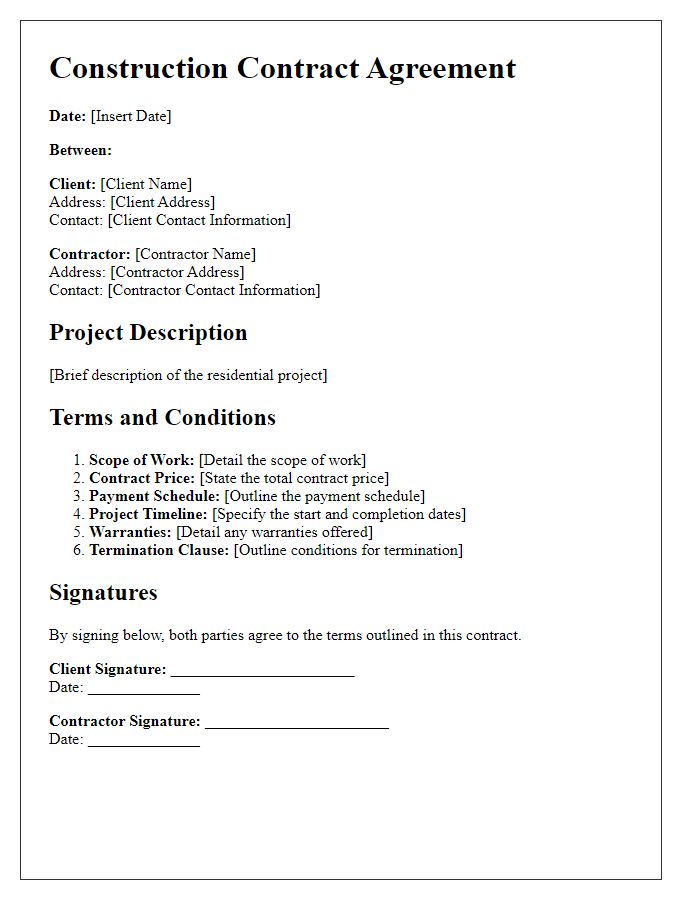
Letter template of construction contract agreement for commercial buildings
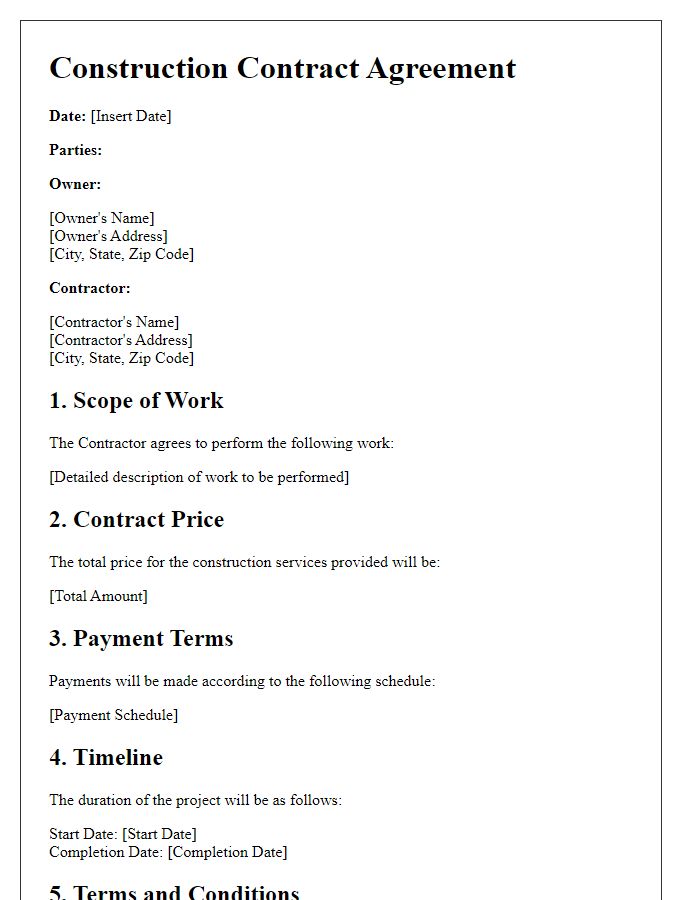
Letter template of construction contract agreement for renovation projects
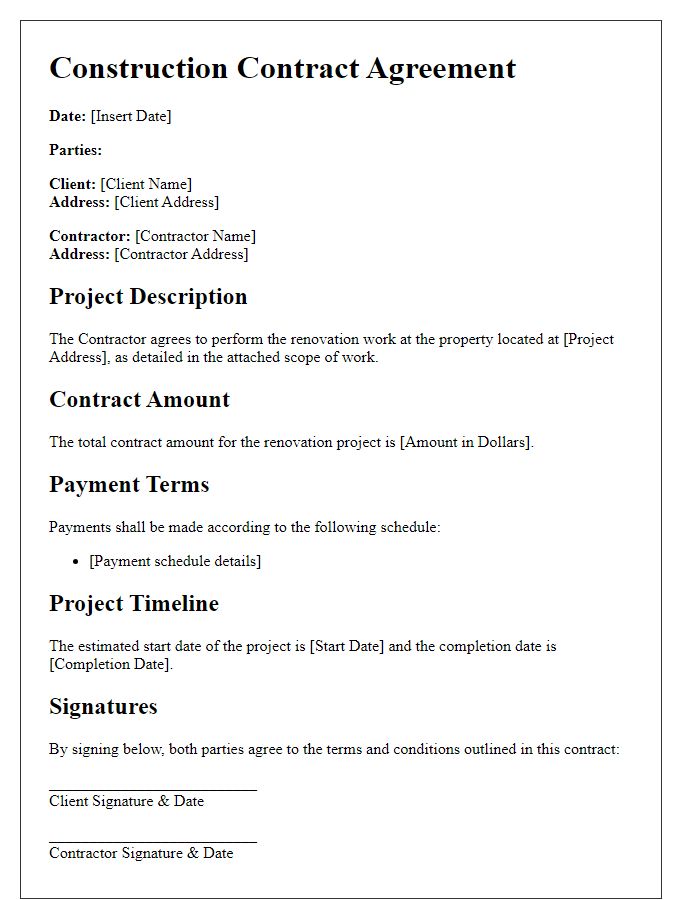
Letter template of construction contract agreement for subcontractor engagement
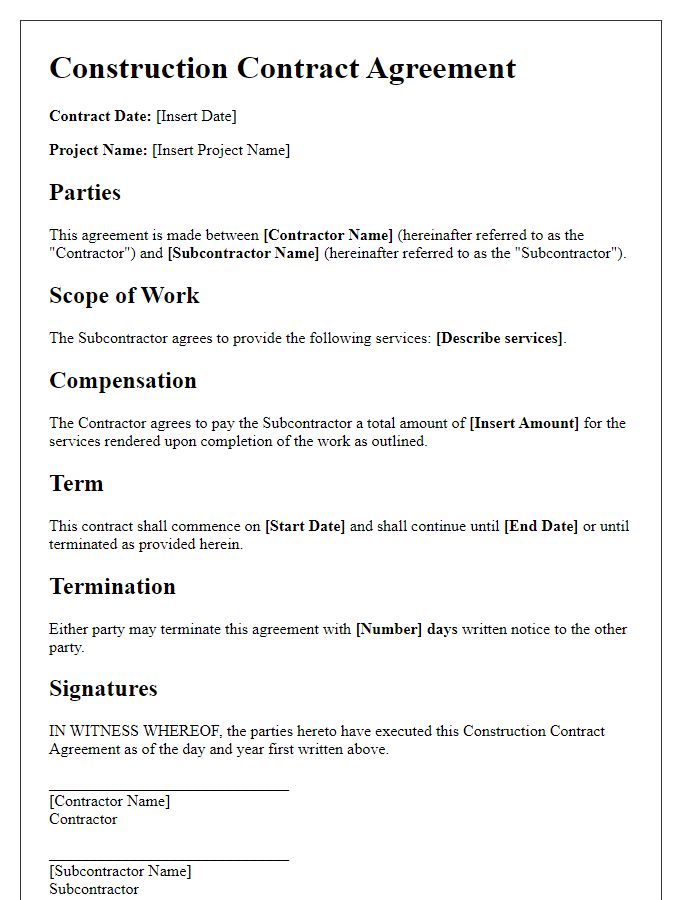
Letter template of construction contract agreement for large-scale infrastructure development
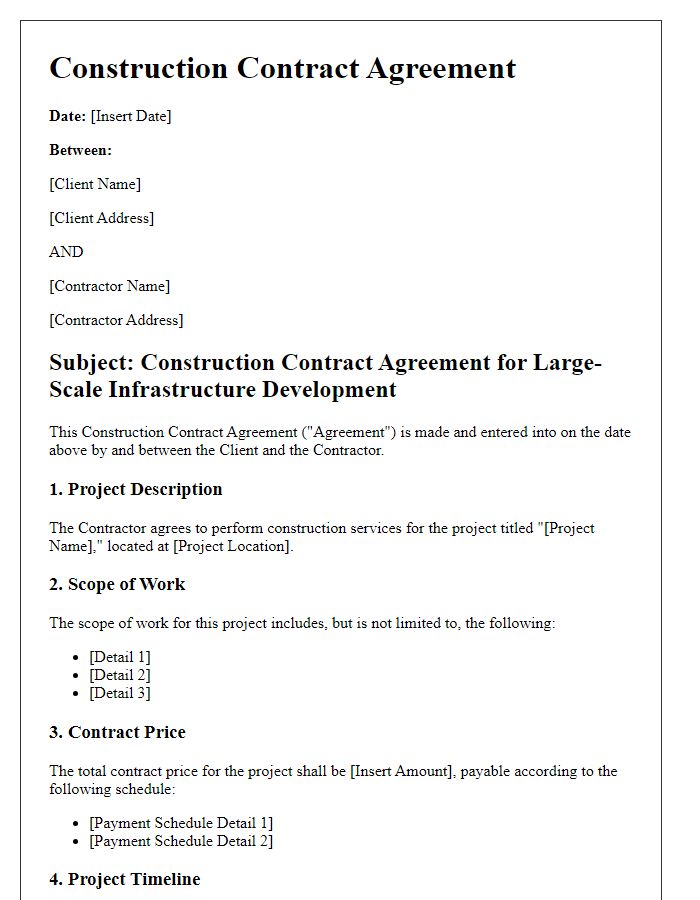
Letter template of construction contract agreement for landscaping services
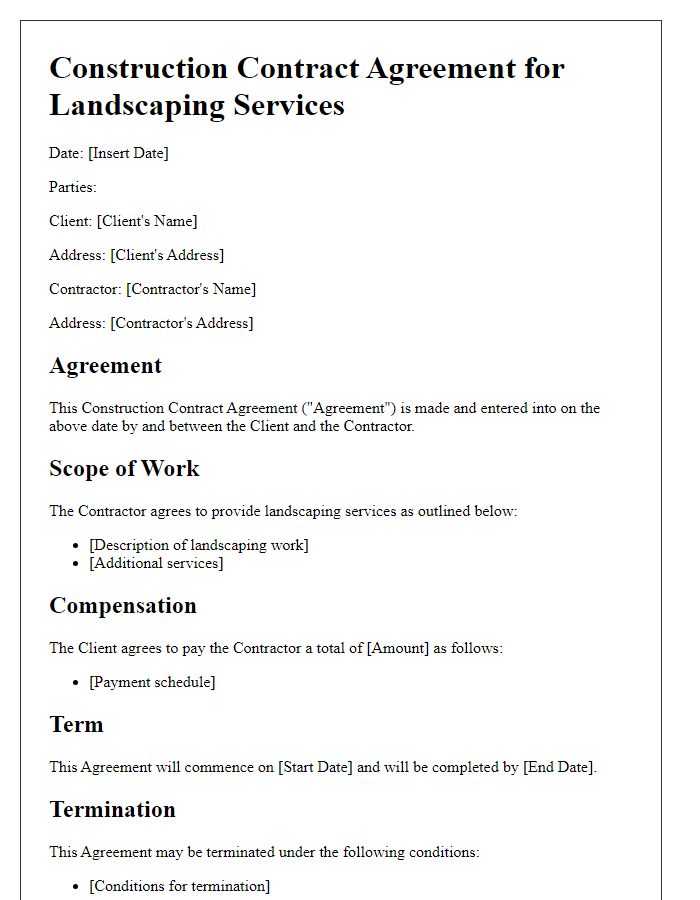
Letter template of construction contract agreement for design-build projects
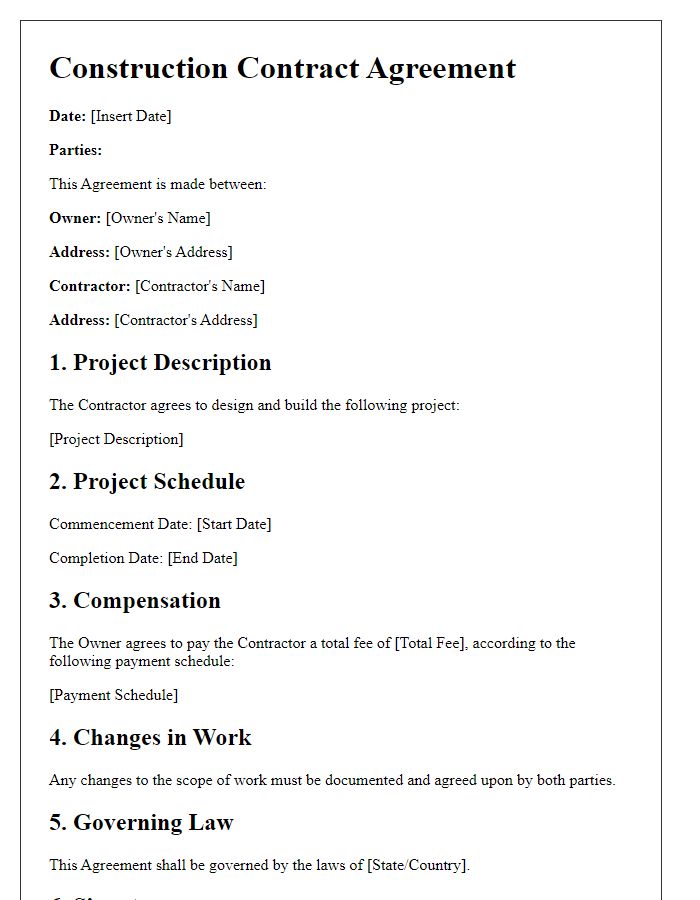
Letter template of construction contract agreement for public works contracts
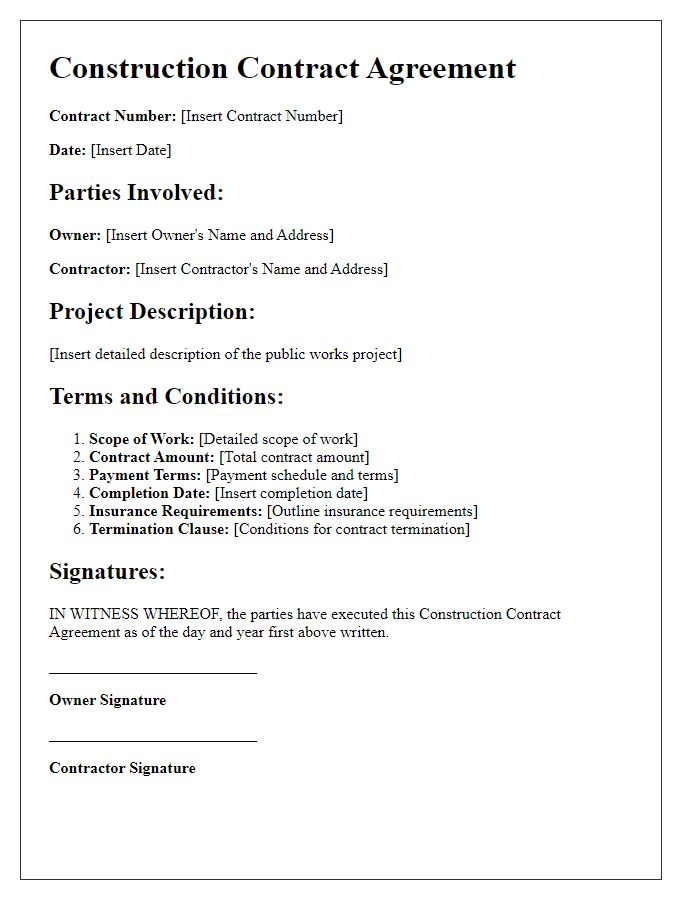
Letter template of construction contract agreement for custom home builds
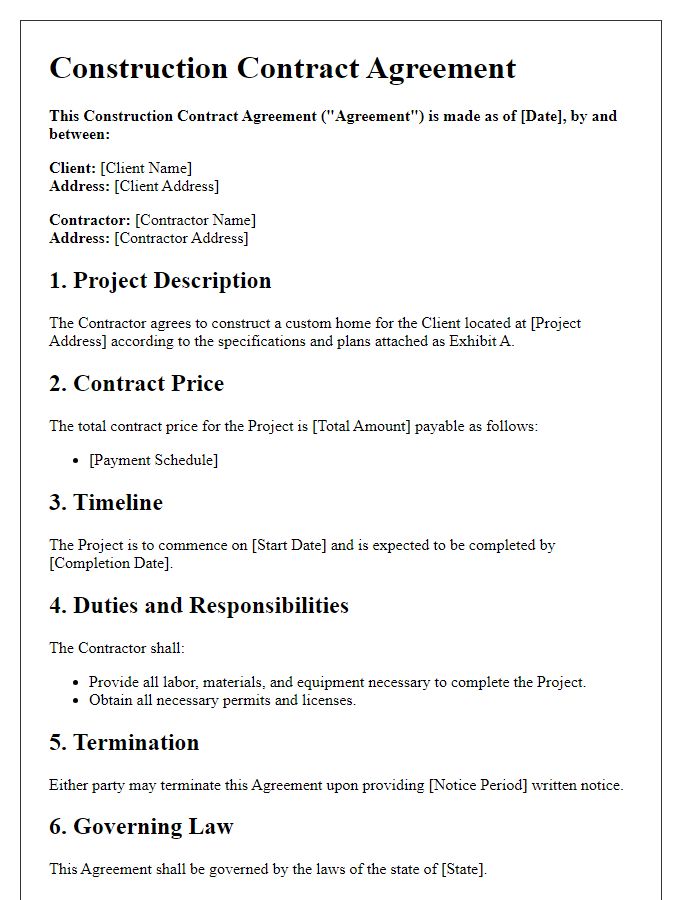

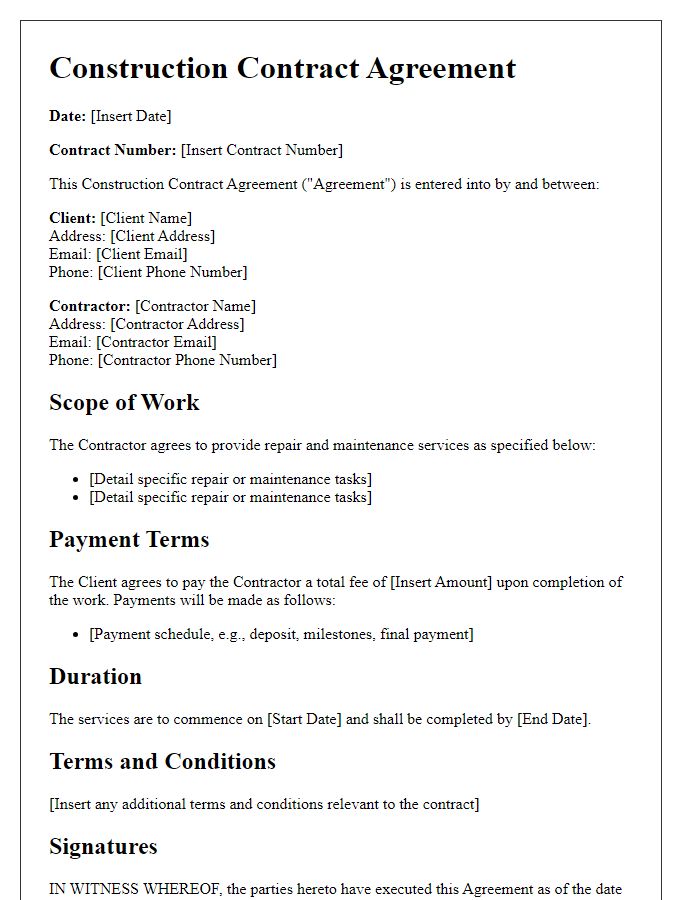


Comments